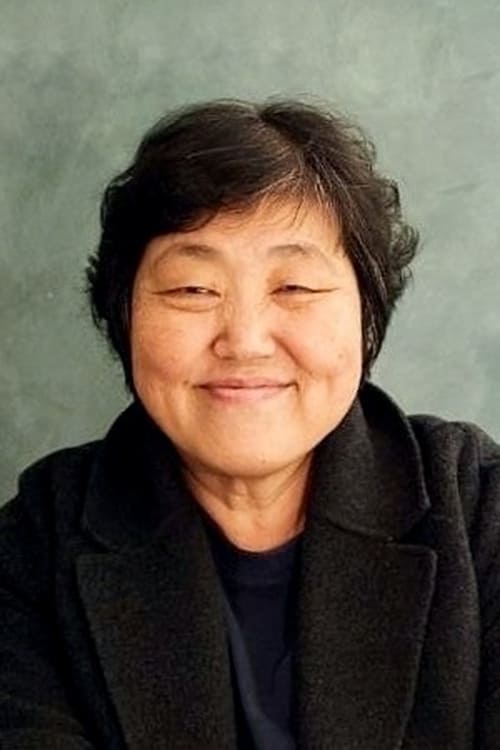Yim Soon-rye
Рождение : 1960-01-01, Incheon, South Korea
История
Yim Soon-rye (born January 1, 1961) is a South Korean film director and screenwriter. She is considered one of the few leading female auteurs of Korean New Wave cinema. Yim Soon-rye is most known for making films that focus on South Korean society. Most notably, women empowerment and women in film. Yim, who is also an animal rights activist, has worked on films that focus on human relationships with animals. Yim creates films that have personal stories and narratives that deviate from the big-budget blockbusters of the Korean film industry. (Wikipedia)

Director
The film is based on the 2007 South Korean hostage crisis in Afghanistan and the subsequent rescue mission.

Director
A story about a diplomat and a national intelligence service agent who struggle and risk their lives on foreign soil to save Korean hostages that have been abducted in the Middle East.
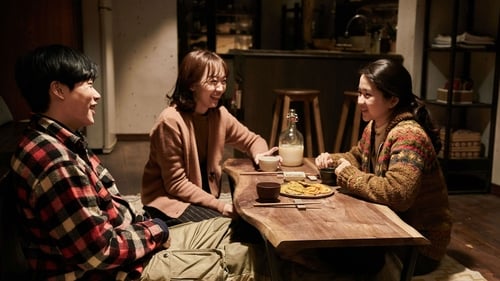
Director
Хе-вон провела детство в деревне и, закончив школу, уехала в Сеул, но так и не привыкла к жизни и еде большого города. Девушка возвращается в родную деревню, где у нее имеются дом и огород. Тишина, свежий воздух, грядки и старые друзья помогают Хе-вон залечить душевные раны, обрести спокойствие и наконец-то насладиться невероятно вкусными блюдами из самостоятельно выращенных овощей и фруктов.
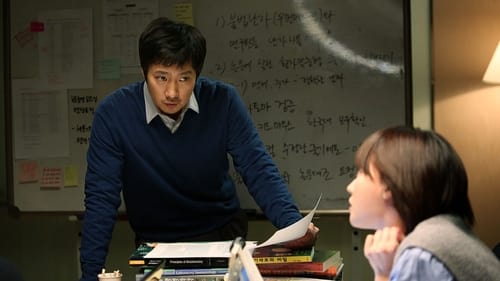
Director
Продюсер ток-шоу отчаянно пытается найти сенсацию. Однажды он получает сообщение, что самая большая и популярная клиника в Корее «The Woman Medical», занимающаяся лечением бесплодия, покупает яйцеклетки незаконно. Почувствовав, что эта новость принесет ему популярность, Мин-чхоль начинает расследование.
Он полон изумления, узнав, что в этом деле замешан доктор Ли, стоявший у истоков изучения стволовых клеток. При полной поддержке правительства доктор Ли является не только надеждой неизлечимых больных, но и национальным героем, светилом науки. Стоя на распутье, не решаясь трогать эту большую фигуру в мире научной медицины, Мин-чхоль получает анонимный звонок от сотрудника лаборатории.
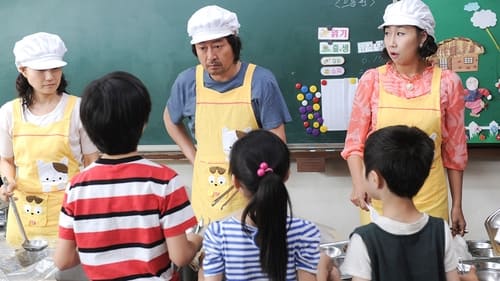
Director
Hae-gap is a director who makes anti-government documentary films. One day, Hae-gap’s son, Na-ra, runs away from home, but Man-deok, a freeloader living in Hae-gap’s house ends up bringing him back. Later, Man-deok raids the head developer of Deul Island to stop its exploitation, and Na-ra helps and ends up getting caught. In order to bring Na-ra out from jail, Hae-gap signs to stop making anti-government films and moves to Deul Island with his family. Na-ra sees his father leading a good, quiet life there and starts opening up. But when a construction company charges in to clear-out the island and the islanders fall at risk of losing their homes, Hae-gap leads a strike against it and his family fall in grave danger...

Herself
Director Chung Ji-Young criticizes the thought that older directors have difficulties in making certain movies. Actress Yoon Jin-Seo agonizes over her identity as an actress. In 2009, before the movie "Unbowed" was made, they met and planned a documentary about Korean movies, including the processes a Korean movie goes through and difficulites. "Ari Ari the Korean Cinema" is a documentary with interviews of Korean directors, actors and actresses.
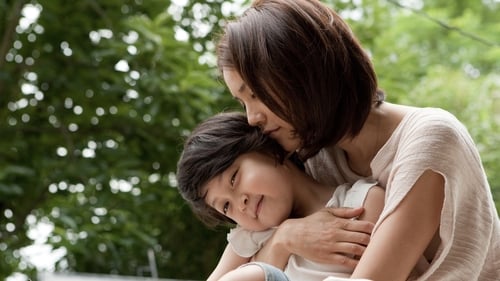
Writer
An impossibly cute and thoroughly touching omnibus of 4 short fillms about how humans can elevate their own relationships through bonding with animals - featuring some of the cutest puppies and kittens ever on the silver screen!

Director
An impossibly cute and thoroughly touching omnibus of 4 short fillms about how humans can elevate their own relationships through bonding with animals - featuring some of the cutest puppies and kittens ever on the silver screen!
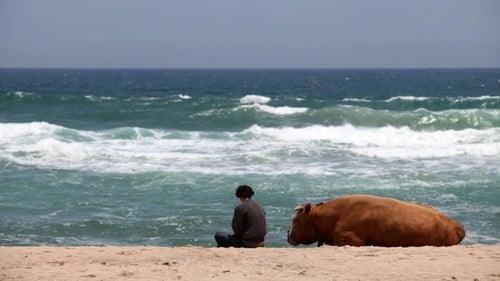
Screenplay
A farmer's son steals his father's prized bull and drives the animal around the countryside in search of a buyer.

Director
A farmer's son steals his father's prized bull and drives the animal around the countryside in search of a buyer.

Writer
Seung-yun is stressed out because he is sent to several private academies after school. His mother reproves him for not living up to her expectations. His father takes pity on him for being nagged on by his mother all the time... Ju-hun, a new employee at a company, is a vegetarian and cannot drink alcohol at all. Chang-su thinks Ju-hun is eccentric and is displeased with him... Su-hyeong sent his son and daughter with his wife to study abroad, but he grows tired of staying alone in his empty house... SONG has lived with her authoritarian husband without any serious problems, but she does not want to stay with him anymore. GWON, an old man, pretends to be calm in the face of his wife’s request for divorce. But actually he can’t do anything by himself... These are not unfamiliar fictional events but rather they reflect the lives of ordinary people in Korea at the present time. Through their stories, shows us how a society imposes normalcy on its people in their daily lives.

Director
Seung-yun is stressed out because he is sent to several private academies after school. His mother reproves him for not living up to her expectations. His father takes pity on him for being nagged on by his mother all the time... Ju-hun, a new employee at a company, is a vegetarian and cannot drink alcohol at all. Chang-su thinks Ju-hun is eccentric and is displeased with him... Su-hyeong sent his son and daughter with his wife to study abroad, but he grows tired of staying alone in his empty house... SONG has lived with her authoritarian husband without any serious problems, but she does not want to stay with him anymore. GWON, an old man, pretends to be calm in the face of his wife’s request for divorce. But actually he can’t do anything by himself... These are not unfamiliar fictional events but rather they reflect the lives of ordinary people in Korea at the present time. Through their stories, shows us how a society imposes normalcy on its people in their daily lives.
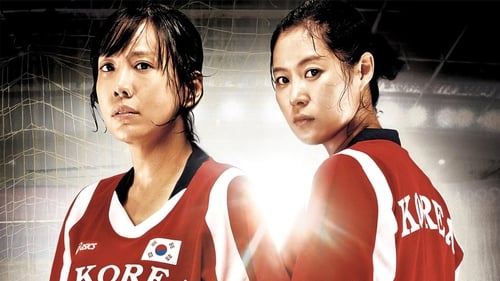
Writer
A look at the Korean women's handball team and their journey to the 2004 Summer Olympics. Their path was far from flowery, and they must overcome many obstacles before they can head over to compete.

Director
A look at the Korean women's handball team and their journey to the 2004 Summer Olympics. Their path was far from flowery, and they must overcome many obstacles before they can head over to compete.

Sturdy Sister
Commissioned by South Korea's National Human Rights Commission, If You Were Me is an innovative omnibus film project to promote tolerance and human rights and shed light on the hardships disadvantaged people face in Korea. After the success of the first anthology, a second series, If You Were Me 2, was released this year. Five notable Korean directors - Park Kyung Hee (A Smile), Ryoo Seung Wan (Crying Fist), Jung Ji Woo, Jang Jin (Guns & Talks), and Kim Dong Won - participated in the second installment, creating shorts on human rights issues of their choosing.
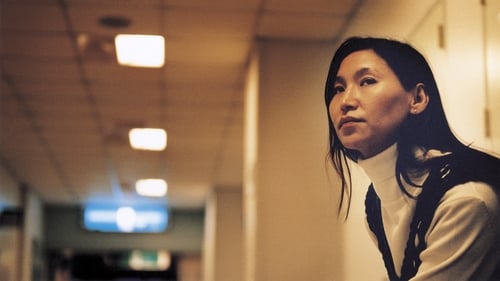
Writer
Anthology film of six shorts by leading Korean directors. Park Chan-Wook, tackles racial prejudice and the economic exploitation of immigrant workers through the real-life story of a Nepalese woman in Korea. Jeong Jae-Eun, tackles the plight of a paedophile released into the community. Yeo Gyun-Dong, invites disabled actor Kim Moon-Joo to re-enact his most famous protest. Im Soon-Rye, goes for the engrained sexism of Korean men with superb wit and, Park Jin-Pyo, confronts the horror of children forced into oral surgery to improve their English-speaking ability.

Director
Anthology film of six shorts by leading Korean directors. Park Chan-Wook, tackles racial prejudice and the economic exploitation of immigrant workers through the real-life story of a Nepalese woman in Korea. Jeong Jae-Eun, tackles the plight of a paedophile released into the community. Yeo Gyun-Dong, invites disabled actor Kim Moon-Joo to re-enact his most famous protest. Im Soon-Rye, goes for the engrained sexism of Korean men with superb wit and, Park Jin-Pyo, confronts the horror of children forced into oral surgery to improve their English-speaking ability.

Producer
This debut feature from female Korean director Park Kyung-hee tells the story of a photographer whose life is changed indelibly when she discovers she has a rare disease which causes tunnel vision and possible eventual blindness. Divided into four sections, it depicts the break-up of her relationship with her boyfriend, her problems with her old-fashioned family, her attempts to deal with her disease through her art and, finally, her desire to fly an airplane before she loses her sight entirely.

Herself
Keeping the Vision Alive is a documentary film containing the voices and images of Korean women filmmakers-both senior filmmakers and also the peers of director Yim. The film is Yim’s homage to both contemporary Korean women filmmakers, written by a filmmaker of the same age, and also to the history of women filmmakers in Korea. Yim does not reveal her own voice or opinion and lets the voices and images of the filmmakers speak for themselves through a non-interventionist camera. From the pioneers, Park Nam-ok, and Hwang Hye-mi, who directed First Experience in 70’s, to recent filmmakers, Byun Young-joo and Jang Hee-sun, the film traces their experiences, troubles, concerns and thoughts as women and women filmmakers. Keeping the Vision Alive calmly and enthusiastically encourages and celebrates the struggles, the resistance and the survival of women filmmakers in a conservative Korean film industry and a male-dominated and sexist social system. (Kwon Eun-sun)

Director
Keeping the Vision Alive is a documentary film containing the voices and images of Korean women filmmakers-both senior filmmakers and also the peers of director Yim. The film is Yim’s homage to both contemporary Korean women filmmakers, written by a filmmaker of the same age, and also to the history of women filmmakers in Korea. Yim does not reveal her own voice or opinion and lets the voices and images of the filmmakers speak for themselves through a non-interventionist camera. From the pioneers, Park Nam-ok, and Hwang Hye-mi, who directed First Experience in 70’s, to recent filmmakers, Byun Young-joo and Jang Hee-sun, the film traces their experiences, troubles, concerns and thoughts as women and women filmmakers. Keeping the Vision Alive calmly and enthusiastically encourages and celebrates the struggles, the resistance and the survival of women filmmakers in a conservative Korean film industry and a male-dominated and sexist social system. (Kwon Eun-sun)
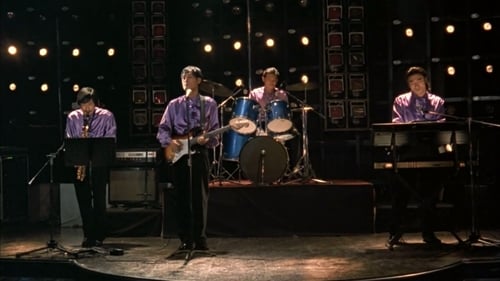
Writer
Waikiki Brothers is a band going nowhere. After another depressing gig, the saxophonist quits, leaving the three remaining members to continue on the road. The band ends up at the lead singer's hometown, which was a popular hot spring resort in the '80s, but the return home is filled with reservations of previous and past disappointments, a lost love, unemployment and tragedy.

Director
Waikiki Brothers is a band going nowhere. After another depressing gig, the saxophonist quits, leaving the three remaining members to continue on the road. The band ends up at the lead singer's hometown, which was a popular hot spring resort in the '80s, but the return home is filled with reservations of previous and past disappointments, a lost love, unemployment and tragedy.

Writer
Three young men prepare to take their university entrance exams while each dealing with real world problems that can effect every day people in Seoul.

Director
Three young men prepare to take their university entrance exams while each dealing with real world problems that can effect every day people in Seoul.

Writer
Jeong-ja isn’t especially pretty or talented. She’s an old maid in her thirties who works at the ticket booth of a theater on the outskirts of town. It’s a hot summer’s day, and because Jeong-ja cannot take time off from her job, she waits for her blind date at the theater ticket booth all day long. But the date does not show up. She follows a handsome stranger who comes out of the theater. At that moment, there’s a thunderstorm. The man disappears and Jeong-ja returns to the theater, drenched and there, she finds her blind date waiting for her.

Director
Jeong-ja isn’t especially pretty or talented. She’s an old maid in her thirties who works at the ticket booth of a theater on the outskirts of town. It’s a hot summer’s day, and because Jeong-ja cannot take time off from her job, she waits for her blind date at the theater ticket booth all day long. But the date does not show up. She follows a handsome stranger who comes out of the theater. At that moment, there’s a thunderstorm. The man disappears and Jeong-ja returns to the theater, drenched and there, she finds her blind date waiting for her.
